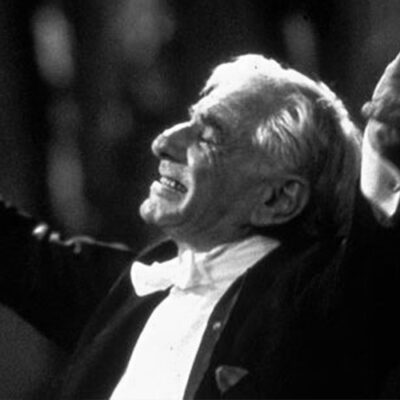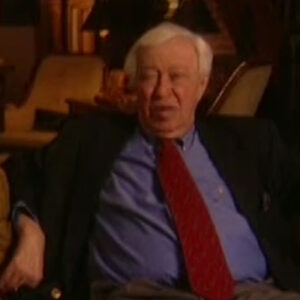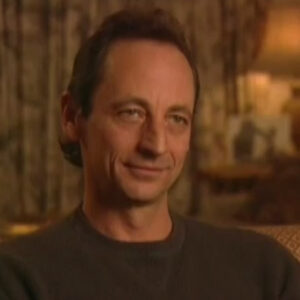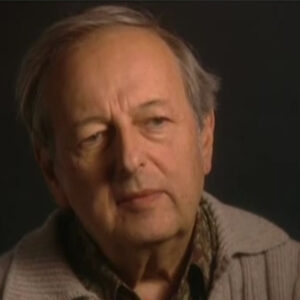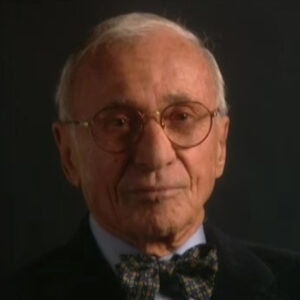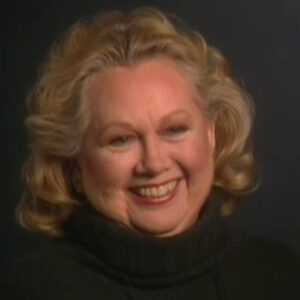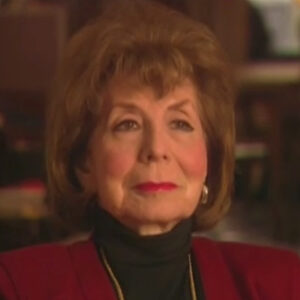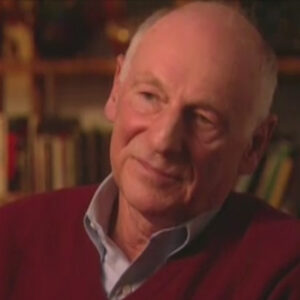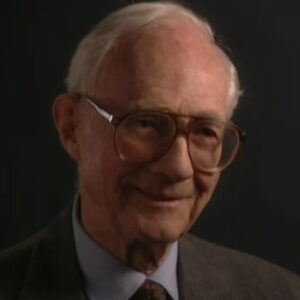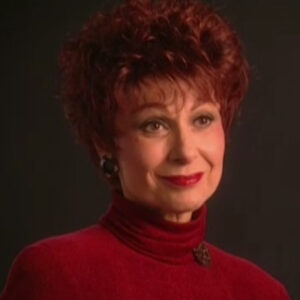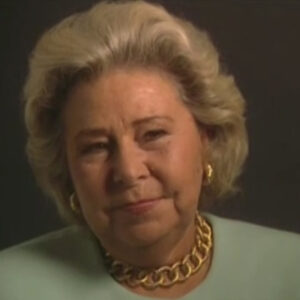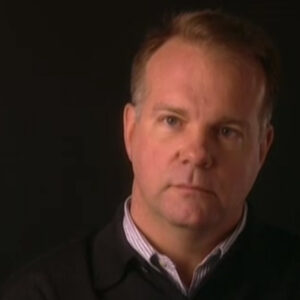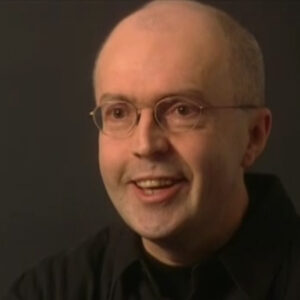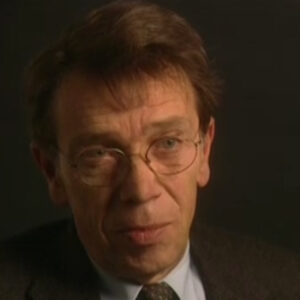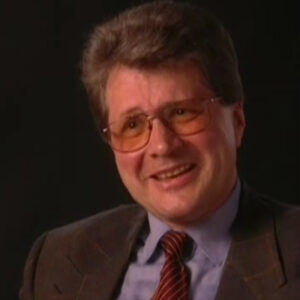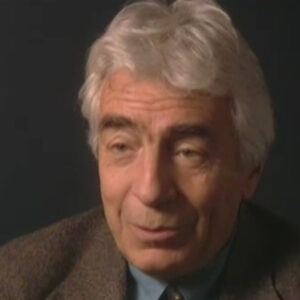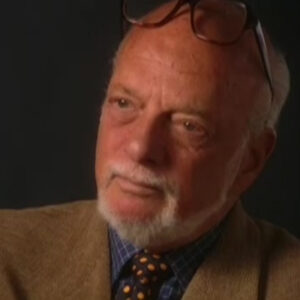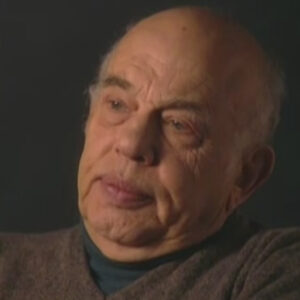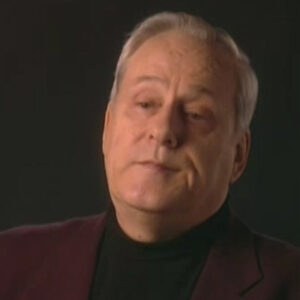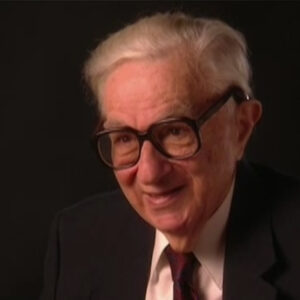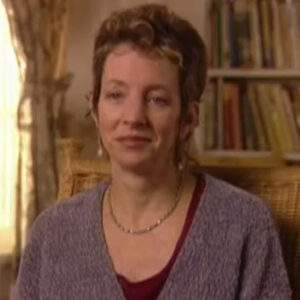Speaker Well, I think probably the best way to start is for you just to tell us how you came, where you came from and when you started your relationship.
Speaker Well, I’m the principal clarinetist of the New York Philharmonic and I joined the Philharmonic in the season in 1948, 49, when I was 19. And at that time, the conductors were Bruno, Walter Leopold Stokowski, Dimitri Metropolis Challenge and Leonard Bernstein.
Speaker He had not yet become Mr. Lenny.
Speaker Lenny was not the music director at that time, but the chief conductor at that time was Bruno Walter. But some of your earliest memories of being played?
Speaker Well, actually, earlier than that, than my joining the Philharmonic, I played Leonie’s sonata for clarinet and piano when I was a student at the Curtis Institute in Philadelphia. I think I was 15 at the time and I didn’t really know much about Lenny. But this piece was suggested for a program and I I performed it. And I think it might have been perhaps the third time it had ever been played anywhere. It certainly was the first time in Philadelphia. What was your first impression of meeting him? Well, completely odd. You know, I didn’t call him Lenny, you know, until probably till the 80s.
Speaker He was always maestro, but it wasn’t that kind of unusual language that Jim Young time. And it’s been written so often that all the players called that Lenny and unusual. That was where you are the only ones going.
Speaker Well, they might have been some others, but I didn’t call them Lenny in those days. How do you feel about being called? I think I think he liked it. I think it was all right. You know, he he he spoke. Of course he was. He was fantastic with language. I think he spoke New York best.
Speaker Great. What was like his reputation at that time?
Speaker Well, tremendously talented. You know, there were so many conductors, so many pianists, you know, but he did he wasn’t just the conductor. He he he could lecture, he could write, he could conduct. And he was a marvelous pianist. I wonder when he practiced. I guess you have to practice to play the piano. Well, but he certainly did. And I don’t think there’s anybody else that that could do all of the things he did. I mean, he was a marvelous composer. Others just do one thing, but he did it all. He probably was the greatest of them all.
Speaker It’s been said in the mind in the world over. Can you just talk to me about that process? How was Lenny when he first came there? It became his music director because he had been his assistant director before. But I mean, how do with how did let him win over orchestras and what was the general feeling for orchestra about him?
Speaker Well, you know, the New York Philharmonic, with a great history going back to 1842, of course, has evolved over the years. They always had great solo players. And it’s a it’s a wonderful ensemble. And and New York being a first city, everybody is an individual and everybody just runs their own way after rehearsals and concerts. But on the stage, when they have somebody like Leonard Bernstein that they can respond to, it really makes a great difference. You his his he had the ability to to draw out of a person the most that they had to give. He did it through through his personality. You know, he would walk out on a stage in a rehearsal or in the concert and something would happen. He didn’t have to do very much. You know, he always said the conducting or making music is not one, two, three, four. It involved other things, you see. But he had a way of convincing you that no matter what the tempo was, it always came out right. You know, with music, we’re very lucky because there’s no right and wrong, only a wrong note perhaps, or a wrong style. But he had this this great ability to to reach an audience and give give them something to remember, because that’s the essence of live performance.
Speaker If it’s great you remember it, it’s wonderful that you said that there is no way Tony Soprano soprano. I tend to agree with that, I think is very personal, expressive and emotional. I think certainly that’s.
Speaker The thing that was the most important thing to me is the emotional content, they came under a lot of attack for that for a very good bit of his career. Can you I mean, do you have a view about why he had such a hard time with the critics?
Speaker Well, you know, speaking of critics, I think that anybody that’s in gets attacked from time to time. And, you know, you’re dealing with with the perception of one person’s perception of something. And it’s very difficult to to overcome that perception sometimes. But I think Lenny was certainly not unique in getting slammed by the press. Others all went through that that ritual. But you see, he he came finally came to the point where he was became an icon and his interpretation changed and grew. You see, he had this other ability to make it sound like it was the first time, no matter how many times it had been done. And that’s another secret of great performance that it must be the first time that came in.
Speaker How did he do that?
Speaker You know, he would rethink works that he’d done many years before and he would even speak about it. Sometimes he’d say, you know, I thought about this symphony by Tchaikovsky and I feel something different has to happen. And it did, whether you agree with it or not.
Speaker So that’s fair. I mean, I read that I get the faculty symphonies when it comes to mind.
Speaker I said I was very sorry to hear that this symphony and we all wrong to do it all over again. Did he change his interpretation that three times?
Speaker Well, of course, you know, we recorded works with him when he was music director. We recorded all the time just about every PC he conducted. He recorded and later rerecorded and years after. And there were different different interpretations. I remember a number of works that were that were rerecorded later with with a new concept for the new fresh drive.
Speaker What was that? What was what were the differences?
Speaker Well, speaking of let me speak about a specific work like the Copeland Clarinet Concerto. I had played with that with him many times and in fact, on some international tours. And when he came to the Philharmonic as a guest in, I guess it was his last time at the New York Philharmonic in October of 1989, I played the Copeland concerto with him again and we recorded it. And I remember being very surprised that his tempo in the first part of this concerto, it was much slower than I had remembered from years before, and I wasn’t sure whether or not I really loved it. But when I heard playback, I realized that he he made this into a into a Mahler slow movement. It was like a prayer and it really worked. He convinced me. What is the audience to look for? Orchestras look at conductors for inspiration and for the ability to to rev things up, to excite, to reach an audience. And if that chemistry is there, it happens, you know, let me say about great orchestras like the New York Philharmonic. The performances are always excellent, but it’s great to look forward to the ones that are special ones that stay in the memory.
Speaker What was some of the. You, obviously.
Speaker Performed under many different conductors, the conductor left just immediately preceding the sheriff along the. And what were some of the differences between the this and perhaps you might point to a couple of other conductors. We had a conductor. Very. What was unique of that one? Give me a few examples of. Compared with other conductors.
Speaker Well, you know, Lenny Bernstein was very courageous on the stage. His repertoire was was great. He tackled new things. He he wasn’t afraid to try new things.
Speaker I think his his predecessor, Dmitri Metropolis, also was was a man of this time. And of course, with the European background, he didn’t he wasn’t Lenny. But he he brought a feeling for the new music and for composers. And Lenny also championed new music. It’s very important to to develop repertoire. So it grows. And sometimes you get a great piece that way. Not every piece will be wonderful, but you have to really try and you have to nurture our composers in our country and other countries.
Speaker You think that you are the rest of the orchestra shares, that you obviously can’t sleep anything as a whole. But by and large, how did the rest of the rest of the orchestra and you’re getting modern music and American composers?
Speaker Well, you know, we’re very individual in New York, except when we’re on the stage, we really work together to try to do our best. I think as far as the repertoire, you know, we run the gamut of those that love new music and those that hate it. But I think given given a chance, a lot of these works come to life. And the 20th century certainly has some wonderful compositions that that are being heard and deserve to be heard.
Speaker Could you could you just describe what these conductors.
Speaker I remember when he when Lenny first started as music director, I think it was an ascherman symphony at one of his first rehearsals as music director and I think somebody kept count of how many times he stopped in that rehearsal. It must have been about hundred and forty five times in in that symphony, which normally would be played through and then just touched up. He he would he couldn’t speak well and explain what he was trying to achieve. And the one one that could really respond to that, you know, he didn’t have to to to give the machine like beats for things to happen.
Speaker It’s just the I will say one thing. He had a fantastic feeling for pulse and rhythm. His rhythm was incredible. It just was always right. It always swung when it had to swing.
Speaker And was. Was letting loose. Well, I don’t know, you know, with with the moods of conductors, you’re always you’re never sure what you’re going to get when a rehearsal starts. But I think Lenny was always up for rehearsals and he he knew how he wanted to work and what he wanted to do very often that he would he would speak a lot. I remember I remember the rehearsals for the Correlational Clarinet Concerto.
Speaker Which Lenny did the premiere with me, and I remember coming out on the stage for the first rehearsal and he spoke about the piece about John Galliano and about how this piece was to be done. He spoke for 50 minutes while I just stood there before I played a single note. I’ll never forget that it was really something and you appreciate it. I thought it was I thought it was fantastic. You know, it was awesome when you say, you know, I don’t think I could remember one word that he said, except that that the that the performance really took off. It was like for me, I thought the like the rite of Spring for a solo instrument, an orchestra. It was it was certainly one of one of the greatest moments in my life described like arriving at rehearsal. What would be his routines, rituals. Lenny at a rehearsal was always he would he would be very he’d be dressed in an interesting manner most of the time, you know, very smart kind of New York style and.
Speaker He would. He’d come out and he would.
Speaker Sometimes say very few words on certain occasions and and just start, but most most of the time he did, he did. It was a it was preparing to start.
Speaker And it was interesting to see the differences. And he he he really knew what he was doing and one kid could sense it and feel it.
Speaker I read that he would come up with my name everywhere and kiss everybody. Is it really based horoscopes? And if get down to rehearsal and then be upset that it started an hour late and then be upset when I had to explain that everything would stop at lunchtime. Is that true?
Speaker And can you tell me that I was charming, charming. You know, as far as keeping a schedule, I know that with many of the rehearsals, one has to start pretty much on time because they have to end at a certain time. And I think when he was music director, pretty much he pretty much kept to the schedule, but it was some of the rehearsals that just were slow and getting started. But there were always interesting because of the repertoire and because of what he brought to it. You know, there was always something, something new and challenging. He was tough in a rehearsal. He he demanded he demanded things. He wanted things to happen. And he he he just wouldn’t wouldn’t let up. He would work until it approached what he wanted.
Speaker And it just it just wasn’t easy if it were because he he of course, he he he sometimes got angry with the orchestra. It’s it happens.
Speaker And I think his certainly his his years as music director were incredible. It it turned the page for orchestral musicians and and great orchestras. Well, you know, we went to a year round concert season with Lenny and we we went into recordings in numbers that we had never experienced before.
Speaker We were we were I remember some periods of time where we’d go five weeks without a single day off because of these recordings that were in the schedule, in addition to the rehearsals and concerts and TV and young people’s concerts and sometimes tours, what are the kind of questions that you can’t really get?
Speaker What are the musical highlights that stand out in your mind over the years? And, you know, that’s kind of hard and it’s a lot of years that are some of the stories. Funny stories, controversial stories, high points, dramatic stories, where one of the things that jumped out at you as you look back, you know, there were so many so many events with with Leonard Bernstein.
Speaker It would be impossible just to single out one or two. I mean, there were there were incredible times. I remember the Resurrection Symphony of Mahler after the Kennedy assassination.
Speaker It just was you had a chill up your spine playing that symphony. The another another time was the Beethoven Ninth in East Berlin. And you said, well, you know, I have changed the world, that that was the so-called freedom concert and where the the word got started to say that this is the way the Berlin Wall came down.
Speaker OK, Lenny went right through to Berlin. Right. You know, the whole story.
Speaker Well, you know, in the I guess it was around Christmas, 1989, Lenny was going to do the Beethoven Ninth from East Berlin because the wall was there were cracks in the wall that was ready to come down. And an orchestra, an international orchestra was assembled. People he invited, there were I think there were eight or nine of us from the New York Philharmonic. I was one of them and other orchestras from around Europe and so forth, and the United States. And we all assembled in Munich, rehearsed for a week, and then went to Berlin, where we performed in West Berlin. And on Christmas morning from East Berlin, and that’s the program that was televised all over the world. And it I don’t know how he did it. He he looked wrong. He was wrung out because of the intensity and the just the the rehearsal was like a concert. And then to have the concert, it was like doing the Beethoven ninth two times in a row. And and he had come I guess he and his his his group had come from London where they had recorded candid, I believe, and everybody had the flu, including Lenny. They were all circus dogs. And that didn’t help. Also. And though the performances were absolutely heart rending, I mean, oh, I think June Anderson was a soprano, wasn’t she?
Speaker I believe I, I can’t recall now.
Speaker I have no idea what happened.
Speaker Well, the that Christmas morning, as I understand it, 250000 East Berliners were coming out West and that’s where they were going to the east. And there was this exchange happening while the concert was going on.
Speaker And it was it was an incredible moment in that in that city because people were going in every direction. And then there were huge screens out in the I guess in the in the square near the Schorsch Bill House where the concert was to take place. So and in West Berlin, near the near the famous and famous monument to the West Berlin, the church that that’s there with the bombed out top, you know, and the screens were set up there so that everybody could see this and hear this concert. And it just was just was an incredible moment. We had, I think the day before there was a private dinner party for our little New York group. And Lenny had said he had a problem sleeping the night before. So he wrote a poem and he presented each of us with a copy of it.
Speaker What was it was the poem was, you know, about being in Berlin at that time at Christmas with the wall coming down and the bells of freedom starting to ring and and so forth. It was it was a wonderful time. What was the innovation in that particular concert with the changing?
Speaker At the very top of that, we all were.
Speaker It was like, well, you know, he inserted the word Freiheit freedom where lesser word was used in the in the traditional Beethoven’s Ninth and it became known as the Freedom Concert.
Speaker That’s exactly what is what are some funny stories you remember?
Speaker Well, I remember, you know, in South America, he was soloist in the in the Ravell Major Concerto and in some of these places, smaller cities in Brazil and and in the places like Asuncion, Paraguay, the piano was one of the best quality. And in one place I remember they couldn’t get the pitch of the piano up to the orchestra. It was and it was really it must have been about almost a half a stone flat. And things like this, you know, were overcome, you know, as best as one could, but you could never be sure. Now on that South American tour, we played all of the anthems of those various countries. We played every single country in South America at that time in a seven week tour. And some of the people had never really heard an orchestra play play their anthem. And some of the more lengthy anthems with with the two sections, like a miniature suite or a symphony. And it was really something because people said, we’ve never heard anything like this. It’s our anthem. But I guess they might have heard it with a small band.
Speaker That was quite a successful tour because I think the other day in which.
Speaker I mean, there’s nothing like it in people where everything sold out, people were lined up around the block for weeks to get tickets and I was a hero. What do you remember?
Speaker Oh, you know, it was it was certainly one of the most successful tours. Lenny was certainly acclaimed everywhere as a hero and the.
Speaker He had fun on the tour also. I remember him riding a motorcycle around an airport once and and another time on Lake Maracaibo, he was water skiing. In fact, I was I was one of the people in the boat described by his wife as well. He didn’t he was very good as a water skier. He he didn’t fall down and which I think is an accomplishment. And in those days, people still water ski. That’s before the jet skis.
Speaker You know, there was this is riding a motorcycle on were right.
Speaker I saw him, you know, get on a motorcycle and take a spin around around the airport once and that, you know, and one time this was I didn’t actually see him in the cockpit, but we had two planes on that tour with the orchestra. Half of the orchestra was one plane and the other half and the other. And we would sometimes be close enough to take pictures of each other. But someone said, Lenny is flying this plane at this moment. But it may have been true. I want to believe it is true.
Speaker But they told us the story that they will all out when you get up and go in the cockpit, there are all right now, you know, and then he went in first place while outside the plane.
Speaker Yep. Oh, that’s that lady had taken him, I guess, called the wheel of the plane.
Speaker Well, he might have been flying the plane at the time. That’s the only time I really got sick on any flight. The plane sort of did a little bit of a jolt. Maybe he was at the controls.
Speaker I should question it. I want you to know that the answer does not have to be reversed. I’m just curious.
Speaker You think you know, my favorite conductor is a tough question because, you know, I like many conductors because of the repertoire that they do. And and a specific piece, perhaps, I’d say as far as this century, certainly nobody better than Leonard Bernstein.
Speaker What do you learn from his work as a musician that you learn from that?
Speaker And I would say what I got from him was a was a freedom that was the I think a spirit to to try to do something.
Speaker And if and if it works, it’ll be great. But at least to try.
Speaker But it isn’t falling.
Speaker Well, I would say the conducting technique varies, you know, from conductor to conductor, and he could be extremely clear when he in a mathematical sense when he wanted to be. But, of course, you know, a lot of the repertoire doesn’t require that. It’s sort of a diffuse canvas and there’s a lot of mood and license and and things have to, you know, conjure up an image of something. And the one doesn’t need a symmetrical beats to get that. But I would say in certain complex, very modern works where many things are working in different directions has to be a certain accuracy for that kind of repertoire. But not not for the so-called the great Masters.
Speaker But I think what was what were his strengths and repertoire?
Speaker His strengths and repertoire definitely were on the inspirational part of the spectrum where he could get one to do better than they actually could do, and orchestras responded, they responded to him just by the power of his of his magnetism or whatever you want to call it, electricity, chemistry. It was it’s something that can’t be taught to anybody, either have it or you don’t have it. And he had it in spades.
Speaker It was the diametric opposite to it. Would you characterize conductors diametrically opposite for me?
Speaker Well, I would say the opposite. Somebody who would have a different approach to the general repertoire. Well, you know, for instance, one of our music directors at the Philharmonic was Pierre Boulez, was an incredible musician and composer. And and some of the repertoire that interested him was very complex, writing things that had to be super accurate so that they came out the right way and that he he had this ability to to prepare these kind of works, you know, in a very quick manner with with tremendous style and and the continuity and the accuracy one could rely on what he was doing in those kind of pieces. I think the interested him. I think the most complicated scores were what excited him. It perhaps works that that didn’t tax his brain so much or his soul that didn’t interest him as much. But he was you very unique involvement. Yes. He that Boulez came after after Lenny’s tenure. Yes.
Speaker Do you think I mean, they knew each other. Oh, yes.
Speaker I mean, how how was that transition actually actually looking at that period of time going from Bernstine to Boulez? It really was it was quite a smooth transition because Boulez happens to be a great musician and and a very fine person and one one that could could really relate as a person to prepare after Lenny.
Speaker What was the last concert like? When can you describe that night?
Speaker Well, the last concert with Lenny. I don’t recall the program on that to you. You have it.
Speaker I think it was March 3rd. It was.
Speaker You know, I can’t believe I remembered that Mahler third, probably the emotional Lenny’s last night and the music director.
Speaker And I felt like, well, you know, I think it was an emotional night playing them all a third with Lenny. But I you know, I guess I did. And perhaps many others always felt that he would always be part of us. And perhaps in the back of our minds, we thought he’d come back some time as music director or at least be there very, very often because he was he was part of we were part of him and he was part of us. You know, it’s it’s it was so right. The right person at the right place.
Speaker How did he do, you know, the orchestra changed your mind?
Speaker I mean, I don’t want to step on any ties here, but I have read that there were people who stuff that many of them, like prior to Lenny, was slightly undisciplined and iconoclastic, no particular disciplinarian and that kind of thing that didn’t shake, which is characterized as being true.
Speaker Well, you know, the Philharmonic over the years has, you know, has been trying to live down a certain reputation that existed many, many years before my time where they were a bunch of tough guys or bad boys. Well, really, it’s not a deserved reputation in in in my history. I would say that that if that existed, it was way before our time, our present time. Now, Metropolis, who was prior music director prior to Lenny, was was an incredible man who was courageous. His repertoire was enormous. He championed the 20th century. He he had a big repertoire. And he was he was a spectacular conductor, actually. One that was not easy to follow because his gestures were were so unpredictable, but but one when one played with him over a period of time, you knew what all that meant. And he he could bring music out with every part of his soul, every part of his body. He had this kind of talent and and drive. He I would say that that the orchestra, you know, responds to to inspiration more than to the strict discipline. In a certain sense, strict discipline will get an adherence to the certain literal things. Perhaps if something has to be slightly faster, slightly slower or slightly louder or slightly softer, those things will be observed with strong discipline. But just the overall picture of of of inspiration, of of this performance that everyone is going to remember for a very long time that that has to come from from within.
Speaker And the.
Speaker Performers like our orchestra from the New York Philharmonic are just just incredible, they can do anything they’re they’re capable of doing, of doing anything musically, and they just need to they just need the right to the right direction and it can be done. It’s the essence of live performances. Is this kind of fresh first time sound?
Speaker And they have it could since Lenny Bruce brought so much of his personality and moves into his conducting, could you tell what when his views were different? I mean, could you if he was very sad, very happy, he was not feeling well. If he was a slave, why did that impact on performance?
Speaker You know, his his performances always were were going to be something special. We knew that. And very often he wasn’t feeling well. He did. He would be coughing. He had he was a heavy smoker, you know, and the. He he wouldn’t be well sometimes, but I don’t know how he did it, he could. He could. The adrenaline came and he did something. There was always something happened. There was never an ordinary performance with him. Never it it sometimes incredible things would happen. Other times they would just ordinarily great. And that’s not nice.
Speaker Can you think of any specific, very specific stories of his relationship with particular where that relationship but particular events happened between a member of the orchestra and Lenny, I’m thinking, for example, of which which would show him something about him and how he felt about his musicians and thinking of a story that I guess one of the players who had a solo coming up and they’d been working really hard and fell asleep and missed some the rehearsal and then came around later and, you know, was there Lenny Lenny didn’t say anything.
Speaker Let it go. And then I guess later in the rehearsal when he was there, when he had looked and said, so where where were you last night? You know, those stories like that that would give that show sort of the human side of Lenny relating to his orchestra, because I know her character is enormously proud of this orchestra and really felt a love affair with the orchestra.
Speaker Do you think that was shared, that did that flow back to him the same way that he felt it was flowing out of him in any specific examples of that?
Speaker Well, you know, he he could really remember what happened in rehearsals and performances, whether they were good or bad, that he remembered them and and they could probably pick something out that happened years before. And perhaps in a solo passage, he he would speak to somebody and say, you didn’t do that the last time and things like that. And he he was very quick in command of language was and was was marvelous. I think I might have said it to somebody. He really spoke New York also, which was very vital. And I remember one rehearsal with him for the Cordiale concerto in a piano rehearsal where we we were just starting to study this piece and find out what it was all about. And and he he turned to Johnny Galliano and said, you’ve written a test piece for conductor because it was such a difficult work to conduct.
Speaker I never forgot that.
Speaker Was it different?
Speaker Was there a difference when you talk about that, he felt and as a composer who was a conductor, that he brought something different to the process, that he said in some ways you always felt that he was, in a sense, inhabiting the composer.
Speaker He was interpreting kind of a composing, actually. Was there a difference between working under a composer, conductor, that conductor?
Speaker I think the many facets of of Leonard Bernstein, the certainly the composing and the and the performing as a as a pianist, I think that had to have made a strong mark in his work, particularly, I would say the fact that he could relate to other composers being one himself. But I would say conducting an orchestra, perhaps the the the most interesting part of what he could bring was the fact that he was an instrumentalist. And it’s it’s it’s definitely helps if one is an instrumentalist and a good instrumentalist in conducting. You know, one can relate to Tempel, one can relate to to difficulties in the passages that things that need perhaps to be held back or moved ahead to fit in all of the all of the the notes and all of the meaning, whereas perhaps somebody that that is not an accomplished instrumentalist or hadn’t maybe had not been one at some time, would it would be made perhaps not as flexible in in approaching the actual performance, the preparation for performance and the fact that he he could do all of these things, enlarged his his vision, enlarged his his picture of what what it was all about and. And one could really could. Could relate to what he was saying and what he was doing and the fact that he was so quick in his mind was so quick and he could grasp what was needed.
Speaker How would you describe mean dozens and very, very specifically how you describe Lennon’s musicality that he’s a musician? Was he a great musician?
Speaker I would say perhaps Leonard Bernstein was the greatest of them all because he was certainly the the the 20th century Renaissance man.
Speaker And he was he was excellent in everything he did. And it was an era that certainly may never be duplicated. His his New York Philharmonic era. It was it was something special.
Speaker That’s great. Was terrific. You obviously love it.
Speaker Well, I would say as a as a human being and as a as a colleague, definitely a great colleague.
Speaker Did you ever worry that.
Speaker I didn’t worry about him. I thought that perhaps he burned the candle at too many ends, you know, he he he he didn’t sleep much and he and he he overdid everything. You know what? It was his way. And he probably wouldn’t have been Leonard Bernstein if he if he had exercised any moderation in anything company.
Speaker That’s probably true of did we there are a number of people who, you know, musicians, loved ones who talked about the fact that they felt that he was troubled by a certain nagging doubt, self-doubt. Was that ever perceived by the musicians?
Speaker His humanity always came through. And he he he could admit mistakes. He was very human.
Speaker And he he was convinced of his concept, of his philosophy about it. But he was not flawless. Nobody is flawless.
Speaker But what he brought, what he brought to his work was this kind of a of a of a truth and and and a beauty and just the drive that he he was convinced of, I think.
Speaker People have talked a lot about Lenny’s love of music, like the first to say fanatic, you know, lover of music, and they talk about their love of music.
Speaker Is that is it, you know, electrical kind of, you know, transferring that to even music.
Speaker People buy the stuff that makes life and be able to translate that that passion about it. Can you talk about his passion for music?
Speaker Well, you know, if one just just looks at the young people’s concerts, you can see what he’s bringing, what he’s bringing to a listener. He I mean, they were incredible. He could he could get to the heart of of something and make you understand it and and make you like it. He he he he always I don’t know how they did that. I mean, it was just incredible to me that they could have a script ready and do it live as they did in the early days. And and the variety of music that just going from one thing to another and how things related. And they just this is mind boggling.
Speaker And I know he he wrote all those scripts and the and the musicians I mean, you know, you all were sitting on the stage with him, you know, demonstrating, illustrating things. Did you all learn something from that as well?
Speaker Well, I think I learned more about what made these pieces work because of those concerts. And they were certainly something that’s ingrained in my brain. They were they were something we start very early on a Saturday morning, I guess it was. And the and everything was was was just cooking from from from the first measure, every word that was just just incredible.
Speaker Was there a difference in that? Curious about between working and Lenny from the podium live and working in the recording studio.
Speaker You know, we made so many recordings with with Lenny of so many different pieces. He he was very hot. He was a very hard worker and in recordings. And I remember time after time where we would be perhaps recording for four or five hours and then he’d say, well, now let’s record it. And he’ll start, you know, right at the beginning. And and then it became fresh.
Speaker It was amazing that that happened many times with that sort of perfectionism have gone down conductors on acting.
Speaker I think, you know, one that has a good chance of getting a good performance in a recording because one can do things over and over again. But what what sometimes you want to have and what you actually want to have all the time in a recording is this feeling of a performance that it’s a live performance and not just a note, perfect recreation. There’s something human about a live performance.
Speaker And I think we achieved that with many of those many of those recordings with the musicians that go out of their way to go that extra mile for money that they might not have for other conductors trying to get a sense of them. Everything I mean, obviously, you never say an orchestra as if it’s one body is made up of individuals. But everything I read leads me to believe that there really was a very special connection between his body and Lenny and that they would go after they would go the extra mile, that they might not have the stomach. I’m not trying to put words in your mouth, but I’ve had that impression. If it’s true, it would be great to tell you.
Speaker I think his orchestra in his time was really his orchestra and they would do everything. He wanted to try to do it anyway.
Speaker And just the fact that everything was an event with Bernstein every tour, every every performance was something special.
Speaker There was no just there was not a single run running through something. It was it had to have meaning and everybody was up for it.
Speaker He had a very glamorous image.
Speaker Was that something that you were all aware of by not letting the man about town that he hung out with movie stars and famous writers and went to the White House and that sort of thing, did that affect your perception of him in any way?
Speaker I think the Leonys Lenny’s whole aura was was a was a great one. The fact that he was so famous and and and was famous in many circles, I think added added to his glamour or his his whole image. And I think we like that. I certainly that was the most senior center in. Well, you know that in the early days he called me Junior, you know, he use nicknames sometimes for people. And I remember coming out to play once in a concerto performance with him. And he he was right behind me. And I was I got to my place at the front, you know, the stage. And he came up and he must my hair up and went onto to the podium and started to conduct. I thought that, you know, it was it was a little extra encouragement or or or telling me we’re going to do something. We’re going to do something great or try to.
Speaker Did you know that the U.S..
Speaker Well, you know, I think everybody could see that he was he didn’t look healthy and and he was very fatigued. And one just hope against hope that it wasn’t going to be very serious. But to eat, he he didn’t look well. And he he was he looked worn out. And particularly I would say that in in Berlin at Christmas. Well, of course, they all had flu. But even so, he was wrung out at the end of the performance. He didn’t leave the stage. He after he took many balls, he just he just stood on stage, leaned against the podium railing, and he had opened his collar. And I mean, the just perspiration was just coming down his face and he was white as a sheet. And he stood there for a while while people were still applauding and bringing flowers up. The concert was over, brought the TV show was over.
Speaker But it was it was really sad, very sad when the funeral cortege was going through the streets of New York.
Speaker I understand you stood in front of Lincoln Center of attention as the court case went by.
Speaker Yeah, that was an incredible moment. You know, I didn’t know that was going to happen. And all of a sudden, I was standing at the curb in Lincoln Center area. And I see this procession coming along with police on motorcycles and then and then this whole funeral procession. And I realized who it was. And because I also recognized friends that were in the first few cars and I just it just broke me up. I just that moment, the sun was shining. It was a beautiful day. And and this just was coming by. And it just it’s just indelible in my mind. And what did you do?
Speaker I just I stood and and just looked and I know people were calling to me from some of the cars aircraft as great as it was, an unbelievable image, you standing there and your father leader had gone.
Speaker He’s going by. I felt like a soldier. It was like that.
Speaker Yes, I think he’ll be missed by me and by many people all over the world.
Speaker How did you all feel when you heard that he’s going to resign as movie director?
Speaker Well, you know, he had at that time the longest tenure of any music director at the Philharmonic, longer than Toscanini or Petropolis or anybody else, perhaps. And I think we always had this feeling that he wasn’t really going to leave us and that he’d be coming back.
Speaker And I think the history of New York has always been that usually the most music directors are there for maybe a decade or less.
Speaker And that’s the way it always had been in New York. And we didn’t have a situation like Philadelphia or Boston where their orchestra had a conductor that was there for forever. And we always thought he’d come back. I was one of them.
Speaker I thought he would come back with each of the other orchestras you play. He played with.
Speaker Well, not I wouldn’t say I was jealous of other orchestras that he conducted, but I knew that talking to colleagues in those orchestras, that they looked forward to his his coming there. And he he was you know, he was conducting all over the world. That’s what you do when you’re conductor. You can’t just stay in one place. I think that that the fact that he after he left the New York Philharmonic never had the never was music director of a particular orchestra. I think that that really didn’t affect his his his career as an artist, because he he he could share with other other cities and other orchestras his his abilities, his talents. And he could he could reach other musicians, our colleagues in these other places and give them something of what we had. And he was too big for one place anyway. He was always bigger than life, you know. He gave that impression of being bigger than anybody else and about the impact on your land and the amount of work.
Speaker And the orchestra had an effect on incomes, lives and that sort of thing.
Speaker Well, you know, with Lenny’s era and we went to a year round concert season and where and prior to that, we played perhaps half the year and then didn’t do anything the rest of the year, perhaps, just maybe he gave music lessons or or went somewhere to play chamber music. But here we here we had the year round situation with many, many recordings, tours and television. And and I think a lot of this was due to the power of his of his personality reaching people more than just the people that come to the concert hall. And it moved us into a different place. And everybody everybody became, you know, I would say normal in the sense that they worked the ground and obviously had a your income. Oh, yes. You know, we we went from a I would say from a just barely getting by to to being able to to live better. And because our income was so much improved and there’s no question about the fact that Leonard Bernstein had had the main thing involved involvement in that.
Speaker I read about such a nice story actually before. So get annoying kills. People are pulling it off and say things like come up.
Speaker And finally, some people here at some point during these years, is that true that he you know, he would get angry and at certain times with if things weren’t going exactly right, he could he could be tough and he was tough. He was demanding. And he could he could really get under somebody’s skin if he if he if he had a mind to do that. And and, you know, in art, you’re always on a cutting edge. And you you know, the. Density of of the rehearsals and and the performances, they they there’s no way of describing what the feelings are like, but you’re always you’re always on the on on the edge of your seat. And remember, take your questions.
Speaker Jennifer is getting some personal territory, if I know what I mean. I asked this before, but I don’t think they understood the question.
Speaker Maybe I did. I’m just trying to get it. Let me mean let me deal with that guy’s emotions.
Speaker I mean, when he was happy, really happy, when he was angry, usually angry, disappointed at all that showed how much of that came into the, you know, the daily life of working with the when Williams said, could you tell he was disappointed? Could you feel that he ever talk about.
Speaker Well, you know, one can one could always know how he was feeling or what his his thoughts were pretty much because he he was he was Leny, you could see you could see it.
Speaker You know, he if he was dissatisfied, you knew it instantly when he was happy, you knew that also. And the one one was always wrong about it after working with him because you just you just gave it all. But there’s no other way to do it if you want it to be great.
Speaker How do you rate both composure? I like his compositions very much. And don’t forget, his first composition was a sonata for clarinet and piano. And you performed I recorded it.
Speaker I’ve recorded it twice. What are some of your favorite compositions?
Speaker Well, I like the age of Anxiety. It’s a fantastic piece, and I always loved playing that. And then, of course, he has his ballet scores were very, I think, very exceptional. And, you know, his music has a great lasting, lasting power. There’s no question about it.
Speaker I I want to ask you something. I’m curious that the critics seem enormously difficult time accepting the fact that many could be equally at home on Broadway and in the concert of musicians.
Speaker I thought that in some areas they perhaps were the people who are jealous of the fact that he could do everything. You know, as great as some of these conductors of the past were, somebody like Arturo Toscanini or Willem Mengelberg, they were just conductors. They didn’t do everything that Lenny did. And I think the conductors are remembered, but not the same way that Leonard Bernstein is going to be remembered. You know, early in his tenure as music director at the Philharmonic, we we went to a year round concert schedule and it was due to his his abilities and and his his, you know, drawing power. If you want to use that term with audiences that perhaps never came into a concert hall. We went to year round at which we are year round to this day and and also the and the other major music centers of the world. And it’s a legacy that came from from Lenny.
Speaker And I have another question as we keep going here. Lenny is legendary for his extraordinary talent and his ear. Do you have any specific examples? I mean, like stories which I don’t think are apocryphal. I mean, that he can literally cease score once and you never forget it and then look at it again and sort of things. I mean, what what very specific, very specific stories now that you remember things that demonstrate in this era.
Speaker Well, you know, he had a he had a wonderful, wonderful retention of of of works that interested him the most and and he could he could remember and draw into exactly how things were phrased and and the kind of sounds he wanted, the pitches he could he had taste in this area. You know, he could he had a very good feeling for the for the for the pulsation, for the rhythm and for the tonality and the fact that he did all of these things, conducting and composing and playing. And it all came into one. And it made him what he was very tempy got slower as he got older.
Speaker And sometimes that was criticized.
Speaker How did you get away with it? Well, you know, when he he he would come with some works that had been recorded earlier earlier years. And he said, I thought about this piece where I want to do something different now. And very often they were the tempos work were slower. I think he didn’t want the pieces to end. He he just didn’t want to let go. And it’s some of it some of the pieces took a little getting used to, but he could he could convince you and that’s the funny part. Somebody once said, right or wrong, he was always right. And I kind of agree with that.
Speaker It’s true to say that I’ve asked the. I think if you’ve got it, I think, oh, just one more thing. What of the situation? Which composers did you most enjoy playing?
Speaker I think, you know, we had cycles of different composers during his time, we did a Nielsen cycle where we did most of the works of Carl Nielsen and I thought it was so exciting. We did all the Sebelius symphonies once and just one after another with all the works of Copeland. I think he he he really tuned into these kind of pieces where you just you know, you just lived an entire an entire career of someone, some composer. And he I remember works of Ives’. He he was very devoted, I think, to the American composers. And there’s some wonderful recordings and performances of of these pieces. And I think they’ll be around for a long time.
Speaker I think from what I saw my own observation just watching this study, it seems that early on he very much identified with eyes of the musicians who simply did that.
Speaker He got all of that spirituals.
Speaker He actually came closer to the 19th century than me.
Speaker Well, you know, I think he did a lot of conducting in Europe where, you know, the tradition was for more of the of their own composers. And I think perhaps he had he he did more of the of these European composers for for that particular audience. But I think he his his feelings were always very strong for our composers.
Speaker One last question. Did any of you ever feel like some of the critics did that? Let’s face up to this. And of course, while this music company and many others in conducting other orchestras and occasional compositions and stay away from Broadway during that time, that it did attempt a lot of it. Did you ever feel the name you feel like you want to stay only just not by the score?
Speaker I personally don’t think he spread himself too thin going in all these different directions because he did them all so well. And his history, his era, certainly at the Philharmonic was was one that was always up. There was never there was never a low point from from my memory.
Speaker Mostly events, most mostly events.

